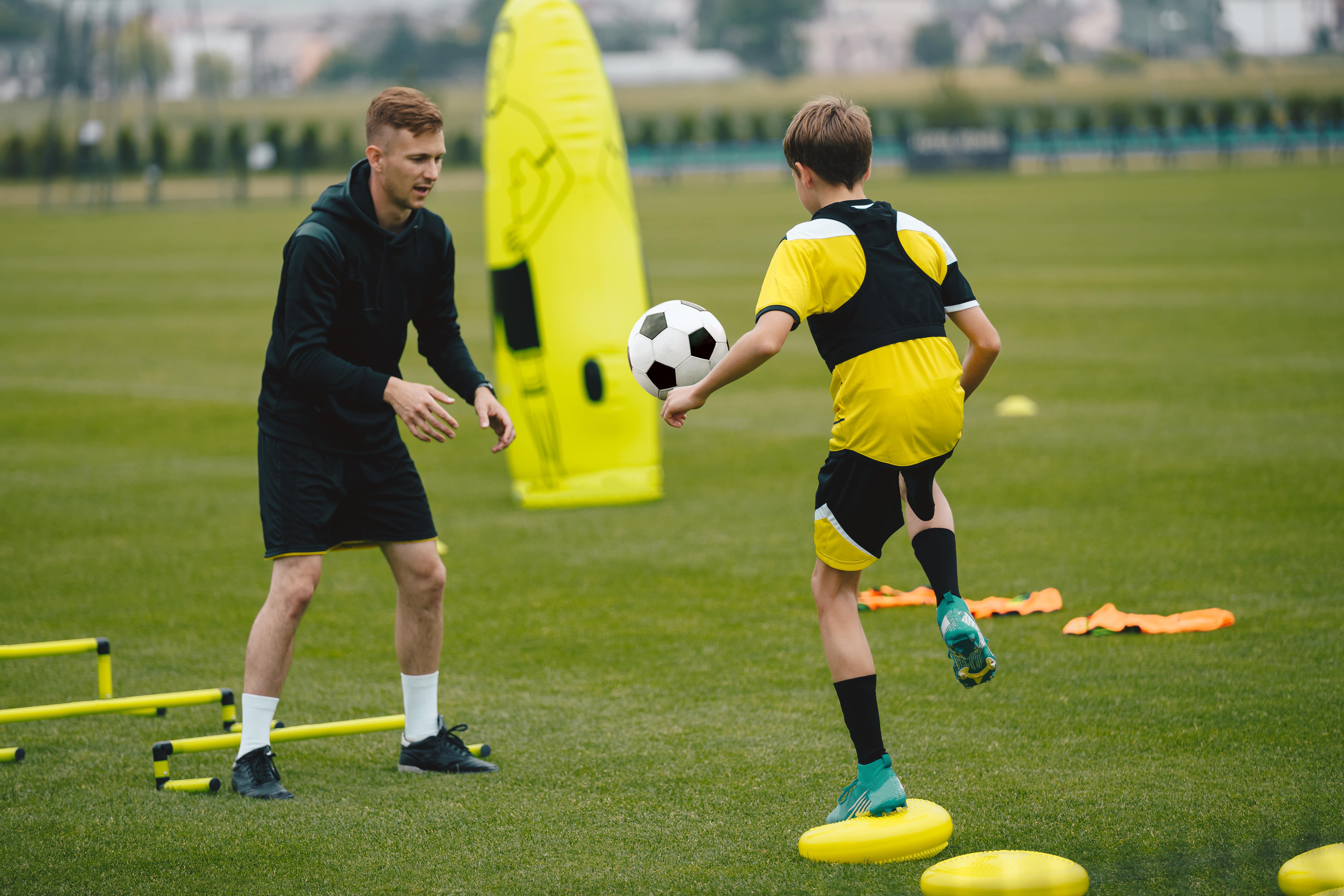
What Qualifications do you need to Become a PE Teacher in the UK?
To become a Physical Education (PE) teacher in the United Kingdom (UK), there are certain qualifications and steps you need to follow. The process involves a combination of academic qualifications, teacher training, and practical experience to ensure that you are well-equipped to educate and guide students in physical fitness and sports.
Education
Undergraduate Degree: You typically need a bachelor’s degree in a related field, such as Physical Education, Sports Science, or a subject with a significant focus on physical activity and sports. A degree in Education with a PE specialization is also acceptable.
Qualified Teacher Status (QTS):
You need qualified teacher status (QTS) to teach in most primary, secondary, and special schools in England. You can get QTS through undergraduate or postgraduate teacher training.
Despite some peoples beliefs about the requirements to be able to teach, you do not need to obtain a Postgraduate Certificate of Education (PGCE) to become a qualified teacher. It will, however, help develop your teaching skills and knowledge.
Courses are offered that allow training for: QTS only, PGCE only, or QTS with PGCE.
Obtaining QTS only means you are qualified to teach in most schools in England. This could also mean that course fees are lower, you submit fewer assignments, and the course could be shorter.
Obtaining PGCE only means that you will not be qualified in most primary, secondary, and special schools in England, however some schools will still employ teachers without QTS.
Postgraduate Initial Teacher Training (ITT): After obtaining your relevant undergraduate degree, you may need to complete a postgraduate Initial Teacher Training program. This training program prepares you for the teaching profession for achieving Qualified Teacher Status (QTS). There are several routes you can take for ITT, including university-led programs, school-centred training, or apprenticeships.
Postgraduate Certificate of Education (PGCE): A PGCE can give you a better understanding of teaching practices, educational research, and theory. It can also be beneficial if you want to teach in other countries because it’s an internationally recognised academic qualification. However, you should always check the local requirements of the country you’re looking to teach in. It can also award up to 60 credits at master’s level which you could use towards a full master’s qualification. This is usually 180 credits. You may want to do a master’s in education, for example, for your professional development and to gain additional expertise in your teaching career.
You can get a PGCE in primary education, secondary education, or further/adult education. Your course will involve both school placements and academic theory. You can do this through a school-led, university-led, or an apprenticeship teacher training programme. You can do a full or part-time PGCE course. As part of selecting your course, you will need to decide if you want to train to teach at a primary or secondary level.
Entry requirements for a postgraduate teacher training course usually include an undergraduate degree or equivalent qualification.
You also need the following GCSEs at grade 4 (C) or above, or equivalent qualifications:
English
Maths
Science (if you want to teach primary).
The aforementioned approach to becoming a teacher requires university admission. Whilst attending university can offer numerous benefits, it is important to consider potential “drawbacks” that individuals may experience. Some of which are:
- Cost and Debt: University education can be expensive with many students being left with loan debt to repay.
- Time Commitment: University programs typically span several years, requiring a significant time commitment.
- Job Market Uncertainty: A university degree does not guarantee immediate employment or success in the job market. Graduates may still face challenges finding suitable employment in their field of study.
- Alternative Pathways: Some professions and industries value practical experience or vocational training over a university degree. Pursuing alternative pathways, such as apprenticeships or vocational training, may be more suitable for certain career goals.
There are alternative routes that people might choose to go down in order to fully achieve their goal of becoming a PE teacher if they do not want to attend university.

Get qualified to work in schools teaching sports
Study towards the Level 3 NVQ Diploma in Supporting the Delivery of PE & School Sport. The approved qualification to become a School Sports Specialist.
School Direct
These are school-led courses that offer a chance of a more “hands-on” approach during training as you are immersed in the world of what your potential future career might look like. You might work in two school environments as you learn. This is a hugely beneficial as the more experience you acquire, the more knowledgeable you will be when you become a PE teacher. These courses offer the equivalent of a postgraduate qualification and generally last about a year.
Some programmes might cover your tuition fees and there are even salaried options as well, meaning that you will be paid whilst you are completing the course. The majority of School Direct training programmes include a PGCE qualification, but not all do. If that is the case, you will be learning even more from this method of training. You might be charged for your PGCE fees if it is a part of your particular training programme. The route is available for both primary and secondary teaching and is run by individual schools or a group of schools.
Whilst this sounds like a great way to achieve QTS, it is important to note that many School Direct programmes do require the individual to hold an undergraduate degree awarded by a UK higher education provider, or a recognised equivalent qualification. You will also need to have achieved a standard equivalent to grade C/4 (or above) in GCSE Maths and English and if you are wanting to teach pupils aged three to 11, you will need a standard equivalent to a grade C/4 (or above) in GCSE Science as well.
So, if you are looking to avoid attending university, then unfortunately this will not be the preferred route for you.
How To Become a P.E. Teacher Without Going to University
Whilst attending university appears to be the most popular route chosen to earn QTS, not every person who aspires to become a PE teacher might be in the position to commit or want to complete a university level qualification. Thankfully, there are other ways to become a PE teacher which do not involve having to attend university. There are a wide range of other professional qualifications and training that are available that act as significant steppingstones to get into the world of teaching.
These courses will provide hands-on experience across various educational settings, which will provide participants with a great range of experience that will improve their employability massively. As with School Direct, there are opportunities to be paid while they learn, and help to guide them along their pathway to becoming a PE teacher.
QTLS
The Qualified Teacher Learning and Skills status (QTLS) provides professional status for post-16 education. It is not a qualification but is a recognised professional status within the field of teaching.
The Society for Education and Training (SET) has designed challenging but achievable eligibility criteria to drive professionalism in the Further Education (FE) and Training sector. Although it might be rigorous, the eligibility criteria are there to ensure that employers have the assurance that QTLS holders are highly qualified and highly skilled to support their learners.
Core criteria includes:
- be an active member of the Society for Education and Training (SET).
- hold an eligible FE and Training teaching qualification at Level 5 or above.
- hold an eligible level 2 maths qualification.
- hold an eligible level 2 English qualification.
- hold a level 3+ subject specific qualification.
- hold a level 3+ qualification in subjects that you teach for 5 or more hours per week.
- hold a level 2 or above SEND qualification (related to an FE setting) if you work in a SEND/SEMH setting/department.
- be teaching/training groups of five or more post-14 learners in a Further Education and Training setting for a minimum of ten hours a week, throughout the Professional Formation programme.
- have identified a suitable supporter.
The criteria that must be met is quite thorough, and for some wanting to apply for QTLS, this number of criteria may be daunting, but on completion; since April 2012, government legislation has acknowledged that people who hold a GTLS and are members of The Society of Education and Training (SET), are equivalent in their professional position than that of teachers who hold QTS.
In short, if you hold a QTLS and are a member of SET, you will be able to teach across all subjects and can have access to equal pay and conditions as teachers who hold QTS.
There is quite a bit of work to be done if you want to apply for a QTLS, but it is definitely a more accessible route to becoming a PE teacher as it allows you to achieve professional standing (equivalent to those who hold a QTS), without needing to attend university.

Get qualified to work in schools teaching sports
Study towards the Level 3 NVQ Diploma in Supporting the Delivery of PE & School Sport. The approved qualification to become a School Sports Specialist.
1st4Sport NVQ Level 3 Diploma
There is another route you can explore without needing to attend university.
If you’re aged 16-24 years and have a passion for sport and working with young people, you can complete the 1st4sport Level 3 NVQ Diploma in Supporting the Delivery of Physical Education and School Sport.
The great thing about enrolling on this course is that it only takes 12 months to complete, and you do not need any previous professional qualifications to apply. Once completed, you can become a PE Lead, Coordinator, Sports Coach or School Sport Professional.
Developed in partnership with the Association for Physical Education (afPE), the 1st4sport Level 3 NVQ Diploma is recognised as the industry standard qualification for Senior Children’s Activity Professionals, by the trade association for providers of sports and physical activity in schools and the wider community, otherwise known as, The Compass Association.
The Association for Physical Education (afPE) has also stated they believe that “by 2015, coaches employed in or by schools supporting Curriculum time P.E. should be qualified to a Level 2 National Governing Body (NGB) Award and be working towards a Level 2 and 3 Certificate in Supporting the Delivery of Physical Education and School Sport or equivalent, to comply with the forthcoming afPE Safe Practice Guidance for Schools.” (March 2013).
The qualification also has the support of CIMSPA, the Chartered Institute for the Management of Sport and Physical Activity, as an industry-relevant qualification contributing to the industry’s professional framework.
You can hit the ground running by working within primary or secondary schools, sports coach clubs or a private P.E. provider, and enjoy immediate hands-on experience.
This accessible course also provides a fantastic foundation for building your skills and experience from a young age, so you can develop your professional status in the field of sports education at the time and pace that suits you.
You can quickly register for the NVQ Level 3 online, without any previous formal qualifications required. The cost is affordable and can be broken down into manageable instalments throughout your year of training. Funding may also be available for some if not all of your fees, and it’s incredibly easy to find out if you qualify – simply apply online and you’ll be informed if you’re eligible for funding support.
When completing the 1st4sport Level 3 NVQ Diploma in Supporting the Delivery of Physical Education and School Sport, with Teach Sport, you will be allocated a tutor who checks in with you regularly to make sure you are keeping up with the demands of the course and who will be available to answer any questions that you may have regarding anything. We have also made a portal with all the course content on there, readily available so you can get to completing the course at your own pace. It also has email addresses of all tutors, including a link that takes you to a booking page where you can book in a face-to-face call to chat about anything you need.


What Qualifications do you need to Become a PE Teacher in the UK?
A qualification that allows you to train whilst you earn and gives you the opportunity to work in primary schools teaching lots of different sports.